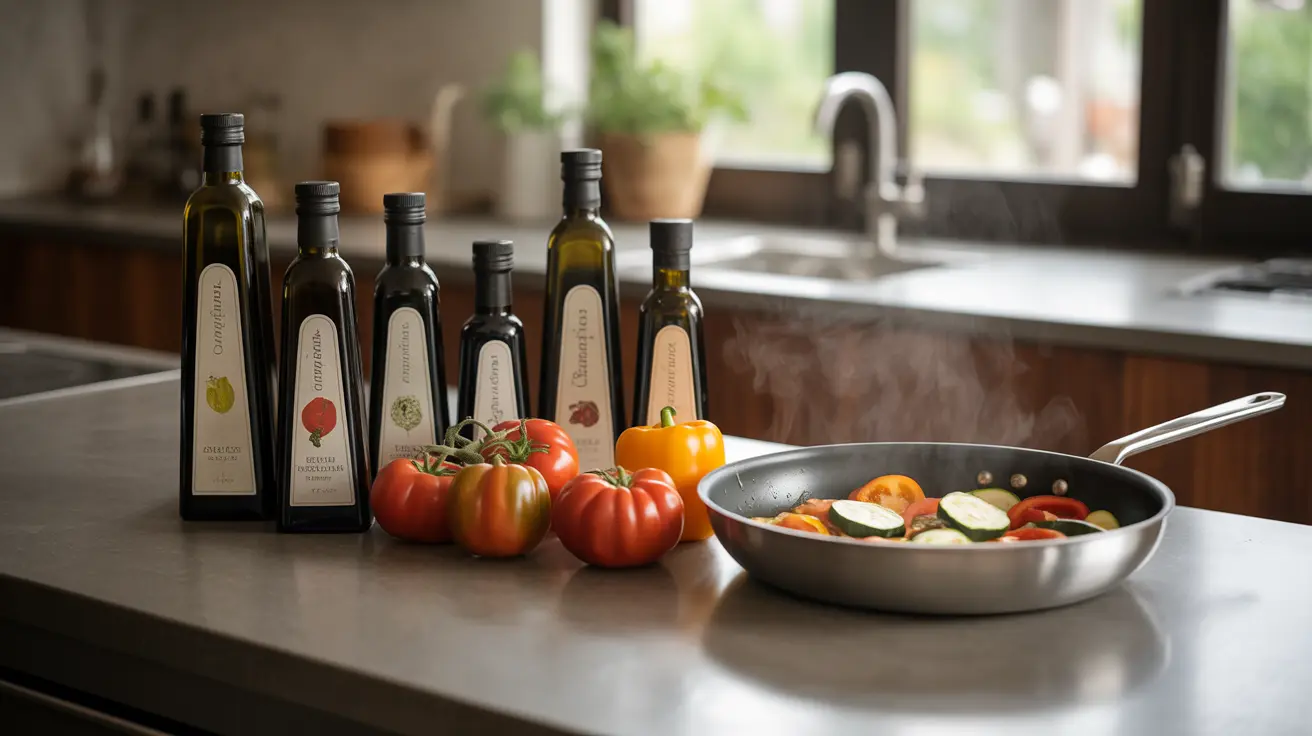Olive oil has long been celebrated as a cornerstone of the Mediterranean diet, but many people wonder about its safety and effectiveness when used for cooking. Understanding how to properly use olive oil in your cooking can help you maximize its renowned health benefits while ensuring food safety and optimal flavor.
In this comprehensive guide, we'll explore the science behind cooking with olive oil, its impact on heart health, and best practices for different cooking methods. We'll also address common concerns about smoke points and nutrient retention to help you make informed decisions in your kitchen.
The Health Benefits of Cooking with Olive Oil
Olive oil stands out as one of the healthiest cooking oils available, packed with beneficial compounds that contribute to overall wellness. Its high concentration of monounsaturated fats, particularly oleic acid, helps support heart health and reduce inflammation in the body.
The oil contains powerful antioxidants called polyphenols, which help protect cells from damage and may reduce the risk of chronic diseases. These compounds remain largely stable during moderate-heat cooking, making olive oil a smart choice for daily meal preparation.
Understanding Olive Oil's Smoke Point
The smoke point of olive oil varies depending on its grade. Extra virgin olive oil typically has a smoke point between 375-405°F (190-207°C), while refined olive oil can withstand temperatures up to 468°F (242°C). This makes both varieties suitable for most cooking methods, including:
- Sautéing and stir-frying
- Baking
- Pan-frying
- Low to medium-heat roasting
- Light frying
Cooking Methods and Best Practices
Sautéing and Stir-Frying
For sautéing vegetables or preparing quick stir-fries, olive oil performs exceptionally well. Keep the heat at medium to medium-high and avoid overheating the oil. You'll know you're using the right temperature when the oil moves easily across the pan but doesn't smoke.
Baking with Olive Oil
Olive oil can be an excellent substitute for butter in many baking recipes. It adds moisture and can enhance the nutritional profile of baked goods while maintaining delicious results. Use it in a 3:4 ratio when replacing butter (3 tablespoons of olive oil for every 4 tablespoons of butter).
Maintaining Nutritional Value During Cooking
Research shows that olive oil retains most of its nutritional benefits during cooking, particularly when used at appropriate temperatures. The oil's structure remains stable under normal cooking conditions, preserving its heart-healthy properties and antioxidant content.
To maximize the nutritional benefits when cooking with olive oil:
- Store in a cool, dark place
- Use within 6 months of opening
- Avoid reheating the same oil multiple times
- Keep temperatures below the smoke point
- Choose high-quality, fresh olive oil
Frequently Asked Questions
Is cooking with olive oil healthy for heart health and overall wellness? Yes, cooking with olive oil is extremely healthy for heart health and overall wellness. It's rich in monounsaturated fats and antioxidants that help reduce inflammation and support cardiovascular health, even when used in cooking.
Can extra virgin olive oil be safely used for frying and sautéing without losing nutrients? Yes, extra virgin olive oil can be safely used for frying and sautéing. While some minor nutrient loss may occur, studies show that the oil retains most of its beneficial compounds when used at appropriate temperatures.
What is the smoke point of olive oil, and does it affect its safety for cooking? The smoke point varies by grade, ranging from 375-405°F for extra virgin to 468°F for refined olive oil. Staying below these temperatures ensures safe cooking and prevents the oil from breaking down or producing harmful compounds.
How does olive oil compare to other cooking oils in terms of stability and health benefits when heated? Olive oil shows superior stability compared to many other cooking oils due to its high monounsaturated fat content and natural antioxidants. It maintains its beneficial properties better than most polyunsaturated oils when heated.
Does cooking with olive oil reduce its antioxidant content and nutritional value? While some reduction in antioxidant content occurs during cooking, olive oil retains significant nutritional value. The majority of its beneficial compounds remain stable during normal cooking processes, especially when proper temperature control is maintained.




